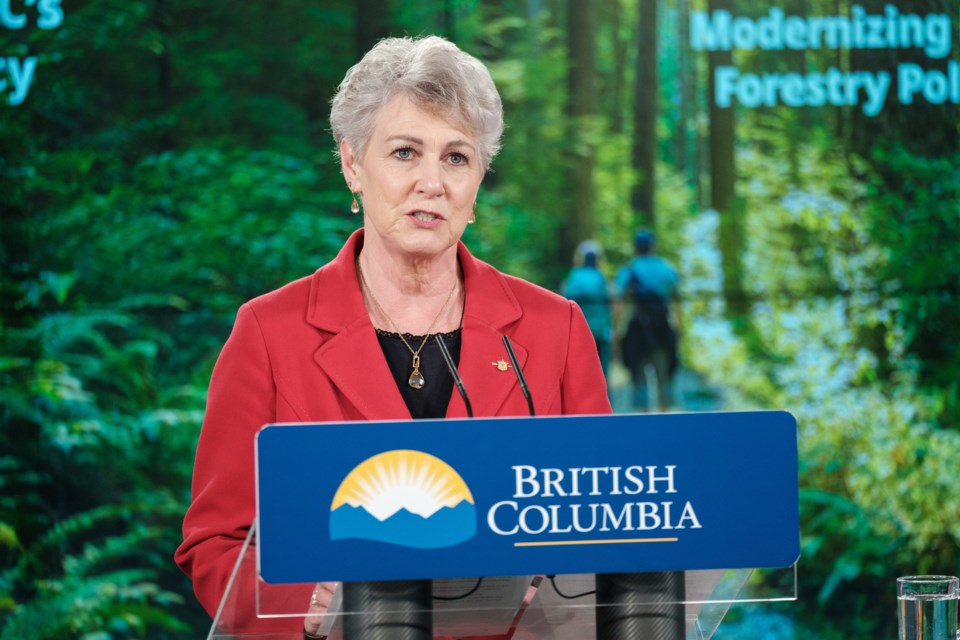You can’t blame the BC government for trying to take credit for an old growth deferral announcement last week between north Vancouver Island First Nations and Western Forest Products. At this point, any conceivable glimpse of good news on the old growth file is desperately needed for a government looking to backstop the troubled plan it unveiled back in November.
Still, the event was cringe-inducing even by the most craven of political standards.
It was clear just minutes into the virtual press conference that the provincial government had virtually nothing to do with the deal struck between the Na̲nwaḵolas Council, representing four Island First Nations, and Western Forest Products.
The agreement to protect 2,500 hectares of old growth near Sayward for the next two years was entirely a byproduct of the strong working relationship between the forestry company and the local nations, grown through years of work in which the BC government played virtually no role.
Yet there was Forests Minister Katrine Conroy trying desperately to portray it as an example of “progress” on her plan to get 200 First Nations to sign on to 2.6 million hectares of old growth deferrals.
“Old growth deferrals like the one we are announcing today are just one part of our overall approach,” she said, while reading a carefully wordsmithed speech.
“But they are an important temporary measure. They create the time and space for BC, First Nations, industry and others to work to develop and implement new long-term strategies to sustainably manage our old growth forest.”
Conroy would like you to believe the Nanwakolas and Western saved those old growth trees because they were part of the 2.6 million hectares identified in November by BC’s Technical Advisory Panel (TAP).
It fell to Dallas Smith, president of the Nanwakolas Council representing the four nations, to delicately point out that was not the case.
“For the Na̲nwaḵolas point of view, we haven’t really focused much on the TAP work to be honest,” he said.
“Just from curiosity, we’ve compared where we are at so we know when the hailstorm of social media comes in where we stand on that. But this is a community-driven process where we’ve reached this 2,500 hectares.”
He later added, just as delicately: “This is a really carefully thought out approach that is Indigenous-driven. This isn't simply a result of responding to existing discussions or pressures that are going on around old growth.
“This is a discussion that we've engaged in for a number of years now that has got us to this point where we can start to see what that certainty and what that balance equation looks like.”
Smith let the minister off easily. He could have made her squirm in discomfort at her ministry’s attempt to swoop in and take the credit for something it had not done.
But both the Na̲nwaḵolas and Western Forest Products knew what they were doing allowing Conroy to attend the event. They know it is not wise to poke the Forests Ministry in the eye after the province last fall passed new legislation that gives the minister extraordinary power to revoke tenures, transfer licences and set compensation levels.
Better to let the BC government get what it wants, and then return to the business of trying to save old growth forests in a sustainable way once the politicians are out of the room.
Rob Shaw has spent more than 13 years covering BC politics, now reporting for CHEK News and writing for The Orca. He is the co-author of the national best-selling book A Matter of Confidence, and a regular guest on CBC Radio.



